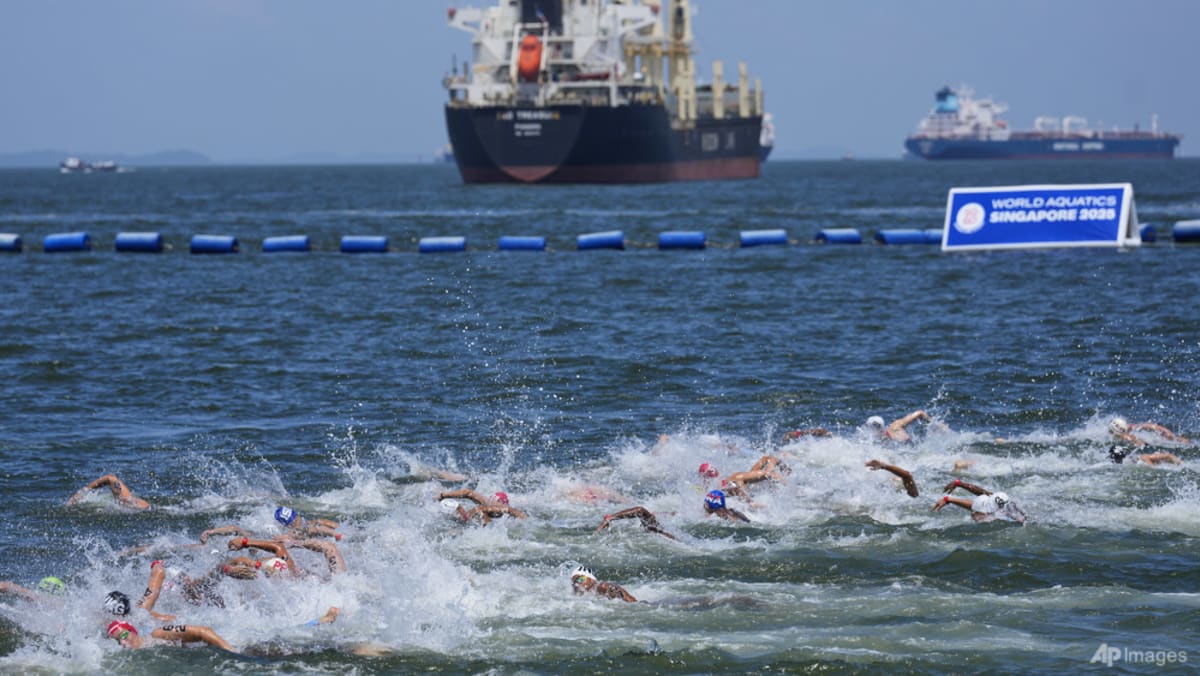Singapore’s Artyom Lukasevits said that the difficulty of the course was down to a number of factors. He finished 43rd, making him the best-placed Southeast Asian men’s competitor.
“It was not just the heat, it was a combination of other stuff. It’s a pretty choppy course … and it’s also a big race,” said the 20-year-old.
“It’s one of the hottest, if not the hottest ever. And everybody’s just kind of fighting for their life, so it’s really difficult.”
The women’s 10km winner Johnson, who clinched silver at the Paris Olympics, said that Wednesday’s race posed the “most challenges” an open water swimmer could face.
“We had current (in the river Seine) but we had current here today, we had hot water, we had waves, we had a bigger field and 36 hours delay with uncertainty. So I think that’s the most challenges an open water swimmer can face,” she said.
“To everyone here who competed and completed the race, you should be proud of yourself.”
She added that she had prepared for the race by training in a short course pool with a temperature of 30 degrees Celsius.
DEALING WITH POSTPONEMENTS
On Tuesday, the women’s 10km race was postponed just hours before it was set to begin, with organisers saying that the water quality levels did not meet “acceptable thresholds” as a result of an analysis of samples taken last Sunday.
The race, originally slated for 8am on Tuesday, was initially pushed back to Wednesday morning.
World Aquatics executive director Brent Nowicki said later on Tuesday afternoon that elevated levels of the E. coli bacteria were responsible for the race postponement. He added that the source of the contamination had yet to be determined.
